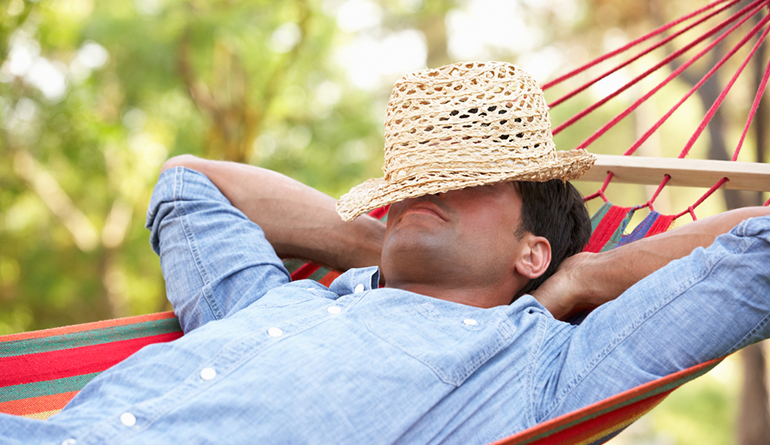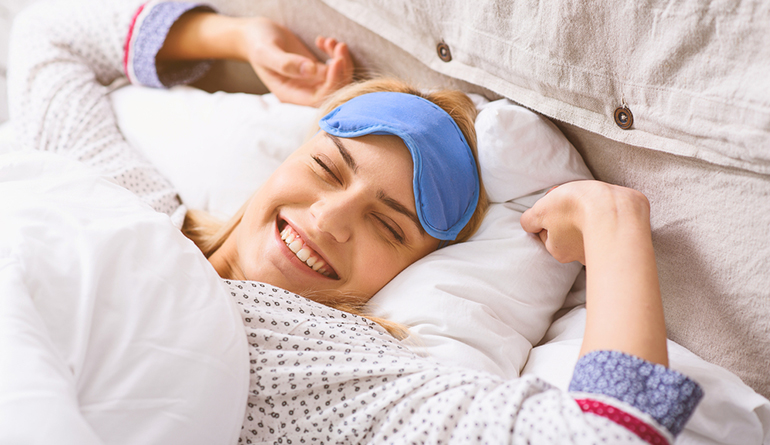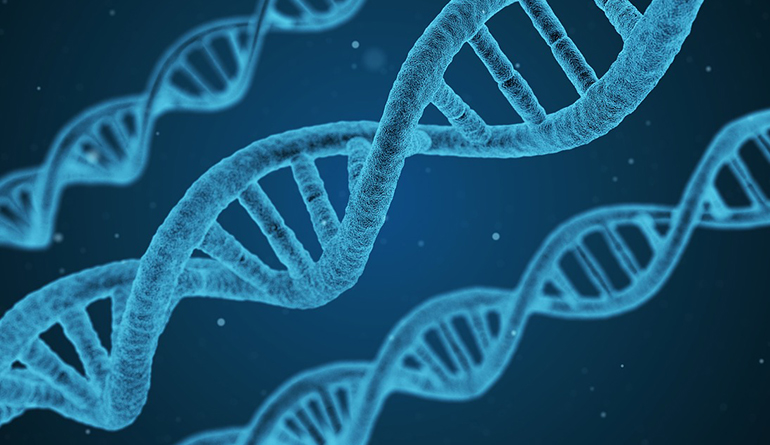Lack of sleep could be taking a serious toll on your mental and physical health.
Sleep-deprivation has been linked to everything from chronic health conditions to barely-there libido and strained relationships.
Thanks to the body’s amazing ability to bounce back, all hope isn’t lost—even for the most exhausted of you. In fact, prioritizing Z’s could make you a happier, healthier person.
Here at Pillow Picker, not only do we compare and review the best pillows. We dig into the science behind a good night’s sleep.
In this article we’ve compiled an exhaustive list of the benefits of sufficient sleep, along with the research to back it up too.
Check it out…
The Many Health Benefits of Getting Enough Sleep
1. Sleep Can Make You Smarter
Skipping out on sleep can actually make it difficult to learn and retain information. The National Institutes of Health (NIH) reports that people who get a good night’s sleep after learning a new task are better able to recall what they’ve learned. In addition, it’s just as important to get adequate rest the night before a mentally-challenging task.
While getting at least 6 hours of sleep boosts the learning process, it’s important to note that longer snoozers reap even more benefits. According to NIH research, folks who sleep 8 hours outperform those who doze for 6 or 7 hours.
Whether you’re studying for an important exam, or learning a new computer system in work, sleep could be a key to your success.
2. Sleep Keeps Your Heart Healthy
The heart and vascular system work in tandem around the clock to keep your cardiovascular health in tip-top shape. The NIH notes that natural dips in breathing and blood pressure during our sleeping hours keeps the cardiovascular system going strong. If sleep is cut short, this needed variance in our internal systems doesn’t take place. Over time, lack of sleep can cause serious health implications.
Encouragingly, people who sleep for at least seven hours each night reduce their risk of developing heart disease by 24-percent, according to a Netherlands study.
Tip: Be sure to get plenty of rest to avoid developing sleep disorders, heart disease, and increased risk of stroke, which have all been linked to insufficient sleep. If you can’t bring yourself to hit the hay, remember: not getting enough sleep results in unnecessary stress on the heart and body.
Bonus: Combine sleep with other healthy habits, such as getting regular exercise and eating a balanced diet, and you’ll have a 65-percent lower risk of developing heart disease, and an 83-percent lower chance of experiencing a fatal heart attack.
3. Sleep Reduces Stress

Speaking of stress, getting plenty of shuteye can make you a calmer person. Getting even slightly less sleep than you need has a profound effect on stress levels and mood, according to Harvard University. In addition to stress, sleep-deprived folks have reported feeling increasingly angry, sad, and mentally exhausted.
Thankfully, it’s not all bad news. Just one good night of sleep, in fact, can make a massive difference in a person’s mood. It’s important to note that sleep and stress can lead to a vicious cycle, as stress and worry often go hand in hand with insomnia. If you’re struggling to sleep due to stress, contact your physician.
4. Sleep Helps Mental Health
Sleep is essential for good mental health, so it makes sense that sleep deprivation is linked to depression and anxiety disorders. Harvard University reports that “15 to 20 percent of people diagnosed with insomnia will develop major depression.”
Even more disturbing is that people who experience insomnia are 20 times more likely to develop panic disorder. In fact, many anxiety disorders have been linked to sleep issues.
Tip: If you struggle with insomnia, try improving your sleep hygiene by powering down electronics, taking part in relaxing pre-sleep activities, and keeping your bedroom cool and dark. If you still can’t sleep, contact your healthcare provider.
5. Sleep Boosts the Immune System
Prone to sniffles or the flu? Getting adequate rest can keep your immune system healthy. According to WebMD, restorative sleep is key, so figuring out just how much sleep you need individually is important.
Most adults require 7 to 9 hours for optimum overall health. Regularly getting less sleep than you need leads to sleep debt, which is difficult to make up, and often leads to chronic health conditions.
Tip: If you are a parent, keep in mind that your child’s sleep needs change as they grow. While newborns need 16-18 hours, preschoolers need slightly less at 11-12 hours. School-aged children require a minimum of 10 hours, and teens need 9 to 10. Adjust bedtimes accordingly to keep your kiddos as healthy as possible.
6. Sleep Makes You a Better Driver
Have you ever spotted a distracted driver swerving in and out of lanes? He or she might have been drunk—or simply in need of a good night’s sleep.
According to the NIH, lack of sleep can cause confusion, and slows reaction time and the natural thinking process. When sleepy men and women are tested using a driving simulator, they tend to perform just as badly as drunk folks. The NIH warns that driving while sleepy is dangerous.
Tip: For the safety of yourself and others, hit the hay for 7 to 9 hours before hitting the road.
7. Sleep Can Make You Happier

Sick and tired of being sick and tired? Getting those Z’s can actually boost your mood and outlook on life. The NIH notes that most sleep-deprived people report feeling irritable, “if not downright unhappy.”
Tip: There’s no need to be perpetually grumpy. If you suffer from chronic insomnia or other sleep-disturbing conditions, contact your healthcare provider. Your happiness depends on it.
8. Sleep Keeps Your Hormones in Check
Unsurprisingly, lack of sleep can throw the body’s hormones out of whack. Deep sleep is necessary for the release of growth and sex hormones, which affects just about every system in the body. The release of these hormones helps with:
- Increased muscle mass
- The ability to repair tissue and cells
- Puberty
- Fertility
- The ability to fight infection
As you can see, keeping our hormones in check is important, no matter what age you are.
9. Sleep Suppresses Appetite and Helps Control Weight
If you struggle with constant cravings or have difficulty maintaining your weight, sleep-deprivation could be the culprit. “Studies find that the less people sleep, the more likely they are to be overweight or obese and prefer eating foods that are higher in calories and carbohydrates,” the NIH reports.
Research indicates that the body’s appetite suppressor, leptin, increases during sleep. Conversely, the natural appetite stimulant, ghrelin, decreases. And so, it’s no surprise that sleep greatly impacts appetite, energy use, and the ability to control one’s weight.
Tip: Have a tendency to nosh all afternoon in an effort to stay awake? Opt for an after-lunch power nap instead.
10. Sleep Regulates Blood Sugar
During sleep, blood sugar levels rise and fall naturally. Lack of sleep, or lack of deep sleep, impedes these natural highs and lows.
The NIH reports on one study in which healthy men were asked to sleep for only four hours for six consecutive nights. Worryingly, the gents’ blood sugar and insulin levels were indistinguishable from someone developing diabetes.
11. Sleep Helps You Live Longer
That’s right! Getting your beauty sleep can actually lead to a longer life. Both too little sleep and too much sleep can shorten the lifespan, according to Health.com.
The website references a 2010 study, which found that women from ages 50 to 79 who slept less than five hours, or more than six-and-a-half hours per night, were likely to live shorter lives.
Tip: For optimal health and a long life, be sure to get the recommended amount of shuteye.
12. Sleep Helps Blood Pressure and Reduces Inflammation
If you suffer with swelling, sleep might just be the best medicine. Inflammation has been linked to many chronic health conditions, including:
- Arthritis
- Diabetes
- Heart disease
- Stroke
- Premature aging
In an interview with Health.com, director of the NYU Sleep Disorders Program, David Rapoport, MD, explained that blood pressure and inflammation can improve with treatment for those struggling with insomnia or sleep apnea.
13. Sleep is a Natural Pain Killer
Most people don’t realize that sleep can affect sensitivity to pain. According to dreams.co.uk, getting plenty of rest can make aches and pains hurt less. This site explains that sleep deprivation has been linked to a lower pain threshold. This is good news for those suffering with chronic pain or monthly menstrual cramps.
Tip: If you have a low pain tolerance or suffer with ongoing pain, try getting the recommended amount of sleep for possible pain relief.
14. Sleep Can Improve Your Grades
Whether you’re a student, or the proud parent of a pupil, research shows that getting plenty of Z’s can lead to better grades. Dr. Rapoport tells Health.com that sacrificing sleep to study for a big exam isn’t necessarily a big deal; it’s severe sleep deprivation that impacts learning, which can result in poor grades.
Tip: Be sure to implement a regular bedtime and wake time routine for the students in your home.
15. Sleep Can Make You a Better Athlete

If you’re a sports star—or just enjoy the occasional jog—sleep can help improve your athletic performance. Multiples studies have found that athletes, including football, soccer, and tennis players, had less daytime fatigue and improved stamina when after a good night’s sleep.
Tip: Gearing up for a race or the big game of the season? Make sure sleep is included in your training schedule.
16. Sleep Can Improve Your Sex Life
Struggling to get in the mood? Sleep-deprivation leads to lower libido, according to Business Insider. Lack of sleep can also lead to other sexual issues, like erectile dysfunction.
Tip: Rest up to increase testosterone levels and your desire for sex.
Bonus: If you like to be more adventurous in the bedroom, try a wedge pillow! You’ll thank me later 😉
17. Sleep Can Save You Money
Tired of spending your hard-earned money on copays at the doctor’s? You’re not alone. Nap.edu reports that sleep-deprived people use more healthcare resources than folks who get sufficient rest.
Bonus: Not only will increasing your sleep time save you money; it will save you precious time.
18. Sleep is a Natural Headache Reliever
You might be surprised to learn that migraine sufferers often have sleep difficulties. Business Insider reports that physicians made this connection more than a century ago, though researchers are still unsure why sleepless nights can lead to migraines.
And it’s not just migraines. Studies show that 36 to 58-percent of sleep apnea sufferers wake up with throbbing headaches.
Tip: If you’re prone to frequent headaches, rest your head a little longer each night.
19. Sleep Helps You See Better
As our bodies begin to tire, our eyes get sleepy, too. Sleep deprivation can lead to some pretty scary vision impairments, including: tunnel vision, double vision, and in extreme cases, hallucinations.
Tip: When you’re fighting to keep your eyes open just a little longer—don’t. Choose rest over reading one more page or answering one more email.
20. Sleep More… Make Less Mistakes
Repeated errors in judgement could be a sign you need more sleep. Some of the most high-profile disasters, including the Space Shuttle Challenger explosion, have been linked in part to sleep deprivation.
Multiple studies have found that lack of sleep leads to dangerous accidents in work environments. “In a large 20-year prospective study in Sweden of nearly 50,000 individuals, those reporting disturbed sleep were nearly twice as likely to die in a work-related accident,” notes nap.edu.
The bottom line? Sleep makes you a safer worker.
21. Sleep Helps Your Speech
The amount of sleep you get can have a major impact on how you interact with others. In fact, sleep deprivation could be mistaken for drunkenness—especially when it comes to speech.
According to the NIH, folks who don’t sleep for a long period of time begin to slur their speech and speak slowly and monotonously during conversation. To make matters worse, those in need of sleep are unable to express themselves verbally, making for awkward interactions.
Tip: If you have the option of sleeping or cramming for that upcoming lecture, cram early and get plenty of sleep before making your speech.
22. Sleep Can Make Vaccines More Effective
You read that right. Vaccines can actually have a lessened effect for people who don’t get enough Z’s, according to the Journal of Immunology. Lack of sleep results in a compromised immune system, making it virtually impossible for those important immunizations to work properly.
Tip: Be sure to prioritize sleep after getting a vaccine. Some studies show that getting a good night’s sleep after a vaccination can make the medicine more effective.
23. Sleep Staves Off Inflammatory Bowel Disease (IBD)
IBD is fairly common in the United States, and lack of sleep can make the painful symptoms downright unbearable. The World Journal of Gastroenterology reports that many gastrointestinal disease symptoms become worse when the sufferer is lacking sleep. In addition to IBD, poor sleep quality and lack of sleep may worsen gastroesophageal reflux disease (GERD) and irritable bowel syndrome (IBS).
Tip: If you suffer with IBD or another gastrointestinal disease, you probably know that symptoms and sleep problems can become a vicious cycle. Contact your health professional if symptoms are keeping you up at night.
24. Sleep Affects Your Genes

Learning that poor sleep affects normal genetic activity might be a wakeup call for exhausted individuals. Insufficient sleep throws off the circadian rhythm, which directly impacts the genes, according to the Proceedings of the National Academy of Sciences.
Research shows that lack of sleep results in genes not behaving normally. Some of these genes aid the stress and the immune system, which are vital for overall health. After just one week of less than adequate sleep, genetic activity is negatively affected.
Tip: If you want more information about your genetic make up, DNA testing is a hot topic right now and can give you great insight into, well, you! Here’s a really useful guide for who provides the best DNA test. And if you want a good comparison of the two most popular tests here’s a breakdown of 23 and Me vs Ancestry.
25. Sleep Can Improve Your Relationships
As you probably already know, it’s difficult to engage in meaningful conversations with loved ones when you’re fighting to stay awake. Sleep deprivation makes it nearly impossible to be in the moment and focus on interactions, as distractions seem to multiply when we’re in serious need of a good night’s sleep.
A study on the neurocognitive consequences of sleep deprivation found a link between sleep problems and social issues. In fact, lack of sleep results in slowed cognitive abilities, meaning it could be difficult to even form a coherent sentence.
Tip: To be a better partner, parent, or friend, be sure to get your Z’s.
26. Sleep Boosts Your Fitness Routine
Believe it or not, exercise is much more enjoyable after a restful night of sleep. Plus, it’s more effective. Why? Working out while exhausted may seem like a massive chore; this often leads to a shorter workout, and a less productive one.
Bonus: Regular exercise can actually lead to better sleep.
27. Sleep Makes You More Creative
Dreaming of a more creative life? Sleep can help you achieve it. According to Health.com, sleep sparks creativity. Research shows that a well-rested brain has the ability to reorganize and restructure memories, which can help the creative process for activities such as art or music. Interestingly, the emotional components of memories also strengthen as we sleep.
Tip: Flex your creative muscle by getting plenty of shuteye.
28. Sleep Cleanses the Brain
Toxins build up in the brain just like the rest of the body. Sciencemag.org reports that the brain shrinks during sleep to allow for fluid to enter and clean the mind. In fact, scientists have found that a brain that is given insufficient time to clean itself can lead to brain diseases, including Alzheimer’s.
Tip: Keep your brain healthy and thriving by allowing it plenty of time to restore itself as you sleep.
29. Sleep = Healthier Bones
Lack of sleep slows new bone formation, according to the Medical College of Wisconsin. Chronic sleep deprivation can result in bone and bone marrow abnormalities, the college reports.
Tip: To keep your bones strong, give them adequate time to rest, recover, and strengthen each night.
30. Sleep Makes You Look Younger and Feel More Attractive

Sleep deprivation speeds up the signs of aging, such as uneven skin tone, fine lines, and decrease in elasticity, according to a University Hospitals study. This might be in part why many women who fail to get adequate rest report feeling unattractive.
Tip: In addition to your regular skincare routine, boost your self-image by penciling in plenty of snooze time for youthful, more radiant skin.
Sleep—or lack of it—affects men, women, and children of all ages. Awareness is the first step to becoming a well-rested, healthier, and happier person. Now that you know the many benefits of sleep, begin making small alterations in you and your family’s sleep routine for lasting positive changes.
Sources I used:
https://www.nhlbi.nih.gov/files/docs/public/sleep/healthy_sleep.pdf
http://healthysleep.med.harvard.edu/need-sleep/whats-in-it-for-you/mood
https://pillowpicker.com/sleep-disorders/ultimate-guide/
https://www.webmd.com/cold-and-flu/features/boost-immune-system#1
http://www.health.com/health/gallery/0,,20459221,00.html#live-longer–0
http://www.businessinsider.com/why-sleep-is-important-2014-12?r=UK&IR=T
https://www.ncbi.nlm.nih.gov/pubmed/18543589
https://www.nap.edu/read/11617/chapter/6#155
http://www.businessinsider.com/what-happens-if-you-dont-get-enough-sleep-2014-2
https://www.nasa.gov/centers/langley/news/researchernews/rn_sleep.html
https://www.nap.edu/read/11617/chapter/6#149
https://www.ncbi.nlm.nih.gov/pubmed/20442067
https://www.ncbi.nlm.nih.gov/pubmed/21632713
Proceedings of the National Academy of Sciences
https://www.ncbi.nlm.nih.gov/pmc/articles/PMC3564638/
http://science.sciencemag.org/content/342/6156/373
http://journals.sagepub.com/doi/abs/10.1177/2047487313493057
http://www.cleveland.com/healthfit/index.ssf/2013/07/university_hospitals_shows_poo.html

